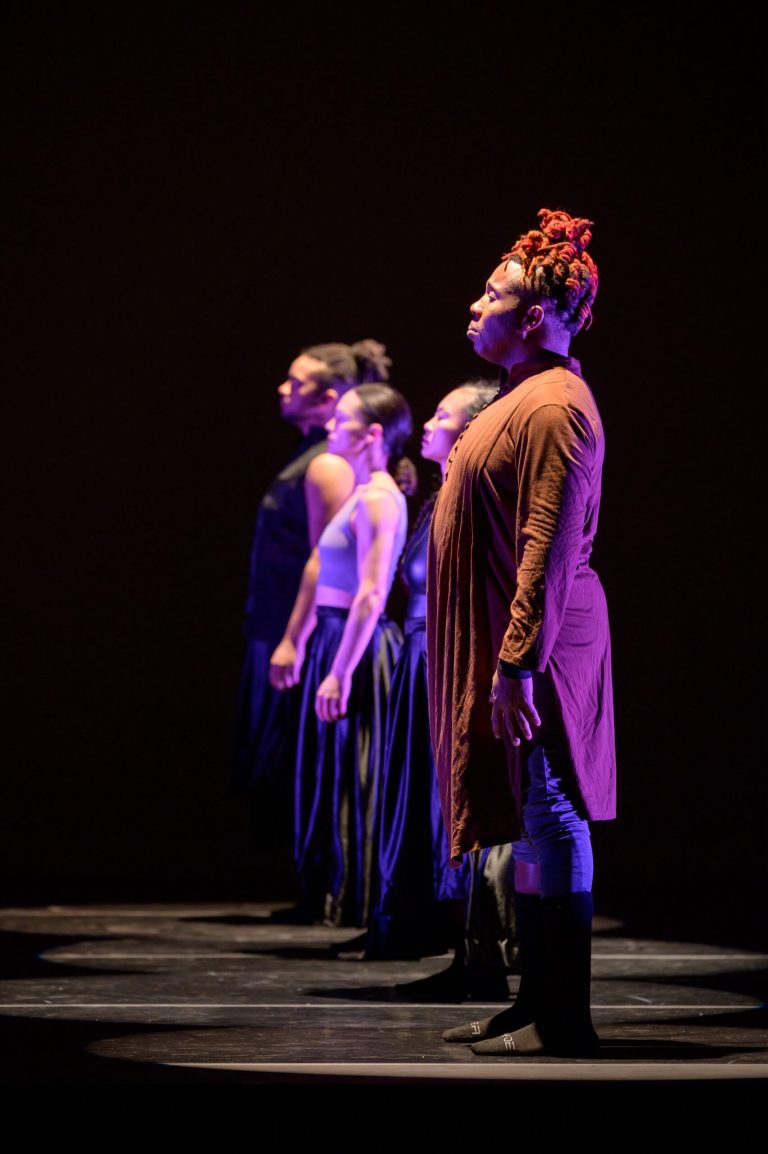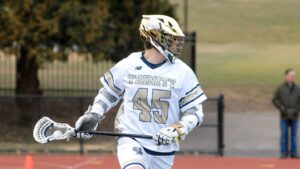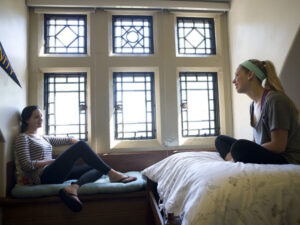Kip Lynch ’22
Executive Editor
With an application deadline of Apr. 9, the search for a new College Chaplain and Dean of Spiritual and Religious Life has advanced to finalizing members of the search committee. Dean of Student Life and Director of The Bantam Network Dr. Jodi Goodman, however, did not respond to a request to disclose the search committee members.
Ellsworth Morton Tracy Lecturer and Professor of Religion, Emeritus Frank Kirkpatrick ’64 noted to the Tripod that previous search committees typically included “at least two faculty and probably some students. Since it is a presidential appointment, it also had administrators from the Dean of Students office.” Kirkpatrick additionally stated that “to date I believe all finalists had to be Episcopal priests and to meet with the diocesan bishop.”
In a comment to the Tripod, the Rt. Rev. Andrew Smith ’65 briefly described the history of Trinity’s relationship to the Episcopal Church in Connecticut. Smith formerly served as Suffragan Bishop of the Episcopal Diocese of Connecticut from 1996-1999 and diocesan bishop from 1999-2010. He explained, “The relationship between the College and the Bishop of Connecticut was clearer when Trinity was an Episcopal school: the bishop was an ex officio member of the Trustees, and the college President was I think most often if not always an Episcopalian. The Chaplain was more or less a joint appointment of both (men).”
However, “once Trinity became independent of the Church, things became murkier. The settlement as I understand it is that what was the Chaplain [previously] a person with no other standing in the college community) now under President Berger-Sweeney has gained a new place in the College structure as Dean of Spiritual Life…with faculty prerogatives such as a sabbatical. As such the person conducts Episcopal liturgy in the chapel and also coordinates the presence and work of representatives of other denominations and religions.”
Smith noted that “there has been the question of whether the person must be an Episcopal priest. The consensus seems to be yes. For one, the tradition and the chapel and its regular worship are rooted in the Episcopal Church; somewhere there is a stipulation that worship in the Chapel is under the jurisdiction of the Bishop of Connecticut. There is also a belief that Episcopal leadership in the chapel will help guarantee openness of the building and the programs to many religious expressions and traditions.”
While the current job description refrains from requiring ordination in the Episcopal Church despite requiring the College Chaplain to “conduct regular services in the Chapel according to the customs of the College and the provisions of the Episcopal Church,” the Rt. Rev. Andrew Smith stated that in his view “so long as Episcopal worship is stipulated by the College, the position must be held by an Episcopal priest or bishop (or perhaps by a Lutheran pastor),” referencing the Called to Common Mission (CCM) that established communion between The Episcopal Church and the Evangelical Lutheran Church in America.
The Called to Common Mission is an agreement whereby both churches recognize each other’s baptisms and ordinations. Therefore, any clergy member ordained in the Evangelical Lutheran Church is able to conduct Episcopal services as stipulated by the Book of Common Prayer.
During a faculty meeting on Tuesday, Mar. 16, Director of the Leonard Greenberg Center for the Study of Religion in Public Life and Professor of Religion in Public Life Mark Silk pointed out that the job description for the position of College Chaplain did not contain any religious identity requirements.
In response, President of the College Joanne Berger-Sweeney noted that the Episcopalian denomination is “adequately represented” at Trinity when she confirmed that the candidates for the position may not need to be ordained in the Episcopal tradition.








+ There are no comments
Add yours